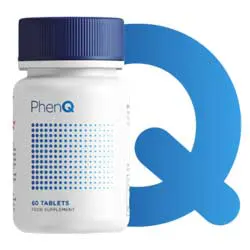We looked into Ozempic on the basis of its ingredients, customer reviews, and more. Does Ozempic really work? Read Ozempic review here!
Overview
Ozempic is a prescription medication used to treat type 2 diabetes. It belongs to a class of drugs called glucagon-like peptide-1 (GLP-1) receptor agonists. Ozempic is administered as a once-weekly injection and is designed to help lower blood sugar levels in individuals with diabetes.

Ozempic
What is Ozempic?
Ozempic, whose generic name is semaglutide, is a medication approved by the U.S. Food and Drug Administration (FDA) for the treatment of type 2 diabetes. It is intended to be used alongside a healthy diet and regular exercise to control blood sugar levels in adults with diabetes.
How does Ozempic work?
Ozempic works by mimicking the effects of a hormone called GLP-1 in the body. GLP-1 is naturally produced by the intestines and helps regulate blood sugar levels. By activating GLP-1 receptors in the pancreas, Ozempic stimulates the release of insulin and reduces the production of glucose. It also slows down the emptying of the stomach and promotes a feeling of fullness, which can help with weight management.
Ingredients
- Semaglutide: This is the active ingredient in Ozempic and is a synthetic version of the GLP-1 hormone.study
- Other inactive ingredients: Ozempic also contains a variety of inactive ingredients that help with the formulation and stability of the medication.
Pros and Cons of Ozempic
Pros
- Effective in lowering blood sugar levels
- Once-weekly dosing provides convenience
- May promote weight loss
- Offers cardiovascular benefits
Cons
- May cause gastrointestinal side effects, such as nausea and diarrhea
- Requires a prescription
- May interact with other medications
- Expensive, especially for those without insurance coverage
FAQ’s
Q: How is Ozempic administered?
A: Ozempic is administered as a subcutaneous injection (under the skin) once a week. Your healthcare provider will provide instructions on how to properly use the injection pen.
Advertisement
*All individuals are unique. Your results can and will vary.
Q: Can Ozempic be used with insulin?
A: Yes, Ozempic can be used in combination with insulin therapy. Your healthcare provider will determine the appropriate dosage and treatment plan for you.
Q: What are the common side effects of Ozempic?
A: Some common side effects of Ozempic include nausea, vomiting, diarrhea, and constipation. These side effects usually subside over time.
Q: Is Ozempic suitable for everyone with type 2 diabetes?
A: Ozempic is not recommended for individuals with type 1 diabetes or those with a history of medullary thyroid carcinoma or multiple endocrine neoplasia syndrome type 2 (MEN 2). It is important to discuss your medical history with your healthcare provider before starting Ozempic.
Conclusion
Ozempic is a prescription medication that can be an effective treatment option for individuals with type 2 diabetes. It works by lowering blood sugar levels, promoting weight loss, and offering cardiovascular benefits. However, it is essential to consult with a healthcare professional to determine if Ozempic is suitable for your specific medical condition and to manage any potential side effects.
Advertisement
*All individuals are unique. Your results can and will vary.


















Owniva B..